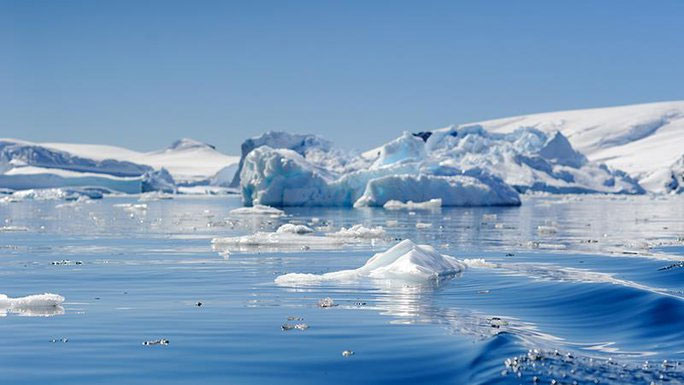In the murky waters beneath the ice shelves of the Southern Ocean, where life was thought to be impossible, life has unexpectedly flourished in ways humans could not have anticipated.
According to Science Alert, recent discoveries indicate that phytoplankton is unusually thriving beneath the ice shelves of the Southern Ocean, the fifth ocean of Earth that was named just a few years ago.
The Southern Ocean surrounds Antarctica, is extremely cold, and is typically devoid of phytoplankton; however, human-induced pollution and “warming” of the oceans have created an unprecedented boost to life.

Southern Ocean – (Photo: NEW SCIENTIST)
Polar oceanographer Christopher Horvat from the University of Auckland (New Zealand) noted that recently, almost all drifting objects within the vast sea ice region have seen an increase in phytoplankton accumulation beneath them.
They also observed a significant blooms, often referred to as “deadly blooms,” because algal blooms typically release toxins harmful to many other organisms and deplete oxygen in the water, leading to the death or forced migration of animals that would otherwise thrive in that environment, ultimately resulting in population declines.
This discovery stems from 2,197 dives beneath the ice by 51 monitoring devices from 2014 to 2021, which led to 79 detailed measurement sequences, indicating that up to 50% or more of the area beneath the ice in Antarctica is currently experiencing conditions that support under-ice blooms.
The sea ice of the Southern Ocean consists of fragmented and increasingly disjointed ice, allowing a small amount of light to penetrate, sufficient for photosynthesis to occur.
In areas where seawater has replaced the former ice, 88% of the measurement sequences showed an increase in phytoplankton right before any seasonal retreat of the sea ice.
While this may lead to a thriving marine population reliant on the flourishing phytoplankton, it also poses challenges for many other populations. Most importantly, this alarming change highlights how human actions have transformed the Earth through climate change. It serves as a warning.
The study has just been published in the scientific journal Frontiers in Marine Science.

















































